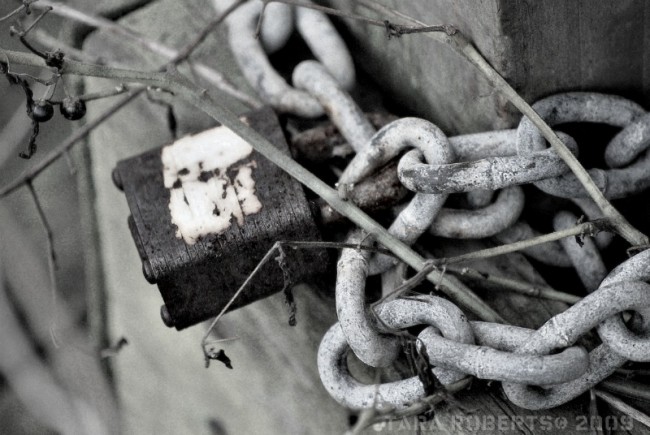
I had interviewed authors before, but this one was going to be more difficult than anything else I’d done. At least with other writers whose work I didn’t like, because they wrote about an uninteresting topic or a literary genre I found dull, I could still find a way to make the review compelling.
I did my homework on the authors. I read their latest publication as well as their older books. I perused previous interviews and articles looking for questions I could expound on. I was always well-prepared, but with this one I wasn’t sure I could be objective.
My libertarian editors most likely chose me for the task because they knew how repugnant I found the book’s subject matter. It’d be a struggle to remain civil let alone give an unbiased critique.
Cameron Bigelow had penned his own book of interviews. Through a collection of vignettes exploring the lives of some of the country’s most heinous criminals, Bigelow was attempting to put a human face on death row inmates.
Initially I pushed to have our meeting at the newspaper offices. Bigelow, knowing I had written several pro-death penalty op-ed pieces, asked for a more neutral venue. We agreed on a conference room at the local public library Settling into our plastic, retro classroom chairs, a cheap wood laminate table between us, we faced off like two modern-day gladiators.
I spread out my questions, written in long-hand on yellow legal pads, notes scribbled in the margins for follow ups on each inquiry. A small digital recorder lay on the table, a cache of replacement batteries in my jacket pocket in case the interview ran long.
Bigelow, leaned back in his chair, legs crossed, arms crossed, trying to look relaxed. His clenched jaw, muscles twitching along his exposed neck, gave away his unease.
We dispensed with routine background quickly ~ early childhood heroes, education, the who and why he developed his anti-capital punishment stance ~ then we got to the crux of the interview. I smelled blood in the water, and Bigelow’s composed posture changed slightly – he was bracing himself for the feeding frenzy.
“While preparing for this interview, I contacted several survivors of your subjects’ murder victims. Understandably, they were upset by the publication of your book.” I left the question unsaid, leaning my elbows on the table, waiting for Bigelow’s reaction.
“I don’t see why they would be upset,” Bigelow seemed genuinely surprised. “Aside from a brief explanation of why each of the men is incarcerated, there was no more mention of the other people.”
“You say, ‘each of the men,’ and ‘the other people,‘ can you bring yourself to actually say, ‘murderers’ and ‘victims’?” I watched his face, wanting to see some sort of guilt or remorse.
“I could if I were speaking of them in that context. The goal of my book was not to revisit the crime that put these men in prison, that condemned them to death, but what came before, before their lives changed, before they changed the lives of these other people.” His eyes flashed, his knuckles turned white where he was gripping his upper arms. “These men weren’t always murderers, not always drug traffickers and sexual predators.”
“But, they did commit these crimes which resulted, often in particularly gruesome ways, in the deaths of innocent people, in some cases children,” I felt my objectivity falling way. I had stopped taking notes. “How does anything other than those actions define who these animals are, and how we should view them?”
“Those actions, undeniably despicable, define them now,” he had moved from his tightly held posture and was now leaning across the table toward me. I was the one pulling into myself, our positions exchanged. “But, before that, perhaps years before that, they were still just someone’s son, a brother, someone’s husband or father. They were more than a deliverer of death, and they were loved.”
“Why not write about their victims,” I asked, my knuckles now white as I gripped my crossed arms. “Their life stories are so often lost in the circus of media trials and court cases?”
“They have family and friends, people who love them to carry on their stories, to keep their memories alive,” he was almost pleading with me to understand. “You’ve heard the phrase ‘dead man walking’? For the people these men leave behind there is a tremendous amount of shame and ridicule they have to endure. Their family and friends are trying to forget them long before they’re executed. I speak for the dead.”

For the IndieInk Writing Challenge this week, Wendryn challenged me with “”I speak for the dead.” Don’t go the Orson Scott Card route, please. Make it scientific rather than psychological.” and I challenged kelly garriott waite with “If there were dreams to sell, what would you buy?” – Thomas Lovell Beddoes”
That was awesome. I became most deeply involved when it came time for the interview. I wanted to know how each character felt, and you really delivered that. By the time Bigelow said “I speak for the dead”, I believed him, and I knew what her story’s title would be.
LikeLike
I’m fascinated by the dynamics here. The way it’s written, you almost force people to choose a side… and what great transition as you move through the piece. I like it.
LikeLike
Beautifully written. Brilliant realism.
LikeLike
Well done! I like the control shifts and it’s an interesting premise.
LikeLike
The defience drives the prose. I like it a lot.
LikeLike
I absolutely LOVED this. One of your VERY best, my dear! Awesome realism, I really thought you were telling me about something YOU did.
LikeLike
The realism was perfect. I thought this was going to be a blog post about a job YOU actually had in the past.
I loved the opposite dynamics represented by each character and how you could feel the shift between them as the other gained dominance.
LikeLike
There’s a visible transition of confidence and power in this story. Love it! Nice job!
LikeLike